Projects will drive industrial emissions down while increasing America’s manufacturing competitiveness in global markets.
Office of Energy Efficiency & Renewable Energy
October 8, 2024Today, the U.S. Department of Energy (DOE) announced more than $43 million in selected projects to support the development of transformational technologies essential for reducing energy use and greenhouse gas emissions across industrial subsectors. With 16 projects selected as part of a $38 million funding opportunity on cross-sector technologies and five projects selected in partnership with the Electrified Processes for Industry without Carbon (EPIXC) Institute, these investments will drive industrial emissions down while increasing America’s manufacturing competitiveness in global markets.
DOE’s investments in cross-sector technologies address common decarbonization challenges across the U.S. industrial sector and can be tailored to meet the unique needs of specific subsectors. Selected projects will advance DOE’s Industrial Heat Shot™ initiative, which aims to develop cost-competitive industrial heat decarbonization technologies with at least 85% lower greenhouse gas emissions by 2035.
“These investments will help the United States meet the Biden-Harris administration’s goal of a net-zero economy by 2050,” said Jeff Marootian, principal deputy assistant secretary of energy efficiency and renewable energy. “Through the deployment of cost-competitive technology solutions, the U.S. industrial sector can increase global manufacturing competitiveness while reducing emissions in communities across the country.”
Cross-Sector Technologies Funding Opportunity Announcement Project Selections
These projects will advance research, development, and pilot-scale demonstrations of cross-sector process and equipment technologies with wide applicability and high emissions reduction potential. Topics were selected in the following three areas.
- Electrification of Industrial Heat. Selected projects focus on addressing emissions associated with industry’s use of process heating through electrification solutions ranging from industrial heat pumps to laser-based drying and curing technologies.
- Efficient Energy Use in Industrial Systems. Selected projects focus on increasing energy efficiency at both the technology level and facility level, helping to reduce system losses and optimize a facility's energy use. Projects include advanced membrane solutions to reduce the energy use of separations processes and the development of more efficient high-temperature heat exchangers.
- Decarbonizing Organic Wastewater and Wet Waste Treatment. Selected projects focus on reducing the direct and indirect emissions and energy use associated with treating wastewater and wet waste. Projects range from the application of photocatalytic disinfectant technologies for removing nitrous oxide from wastewater to energy-efficient aeration technology for water resource recovery facilities.
Learn about these 16 projects.
Electrified Processes for Industry without Carbon Institute Project Selections
Selected projects will cost-effectively lower emissions, enhance energy efficiency, and expedite industrial decarbonization through the electrification of process heat—the single largest source of industrial emissions.
The selected projects will develop and scale innovative electric heating concepts for chemicals, steel, and cement manufacturing to reduce emissions, improve flexibility, and enhance the energy efficiency of industrial heating using cost-effective solutions. In addition, these projects will address the challenge of integrating these new technologies and processes into existing facilities designed around conventional heating technologies.
The EPIXC Institute is DOE’s newest Manufacturing USA institute funded through DOE’s Industrial Efficiency and Decarbonization Office (IEDO) and led by Arizona State University. The institute is a public-private partnership developed to drive decarbonization of the industrial sector using clean electricity with cost effective, high-impact solutions that will help increase U.S. industrial competitiveness and decrease GHG emissions.
Learn about these five projects.
Project Support
These investments are part of the Technologies for Industrial Emissions Reduction Development (TIEReD) Program, which leverages resources across DOE’s applied research offices to invest in fundamental science, research, development, initial pilot-scale demonstrations projects, and technical assistance and workforce development.
These projects are funded by IEDO in DOE’s Office of Energy Efficiency and Renewable Energy.
Selection for award negotiations is not a commitment by DOE to issue an award or provide funding. Before funding is issued, DOE and the applicants will undergo a negotiation process, and DOE may cancel negotiations and rescind the selection for any reason during that time.
Relevant News
-
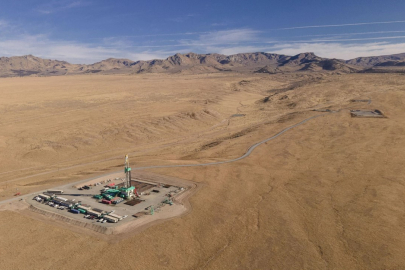 Advanced by Americans: A Year of Energy InnovationJanuary 17, 2025
Advanced by Americans: A Year of Energy InnovationJanuary 17, 2025 -
 Study identifies and models strategic pathways that can transform the industrial sector to create jobs, jumpstart American innovation, and create healthier communitiesJanuary 17, 2025
Study identifies and models strategic pathways that can transform the industrial sector to create jobs, jumpstart American innovation, and create healthier communitiesJanuary 17, 2025 -
 The U.S. Department of Energy’s (DOE) Advanced Materials and Manufacturing Technologies Office (AMMTO) released a request for information (RFI) to solicit feedback from stakeholders on AMMTO’s Wide Bandgap Power Electronics Strategic Framework draft.January 16, 2025
The U.S. Department of Energy’s (DOE) Advanced Materials and Manufacturing Technologies Office (AMMTO) released a request for information (RFI) to solicit feedback from stakeholders on AMMTO’s Wide Bandgap Power Electronics Strategic Framework draft.January 16, 2025 -
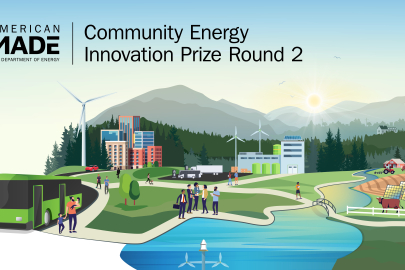 CONCEPT Phase Applications are now open in three tracks focused on clean energy, manufacturing, and transportation projectsJanuary 15, 2025
CONCEPT Phase Applications are now open in three tracks focused on clean energy, manufacturing, and transportation projectsJanuary 15, 2025 -
 Projects will drive industrial energy use and emissions down while increasing America’s manufacturing competitiveness in global marketsJanuary 8, 2025
Projects will drive industrial energy use and emissions down while increasing America’s manufacturing competitiveness in global marketsJanuary 8, 2025 -
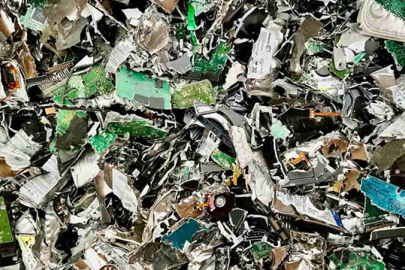 Teams with innovative ideas to reduce electronics waste compete to win prizes.January 8, 2025
Teams with innovative ideas to reduce electronics waste compete to win prizes.January 8, 2025 -
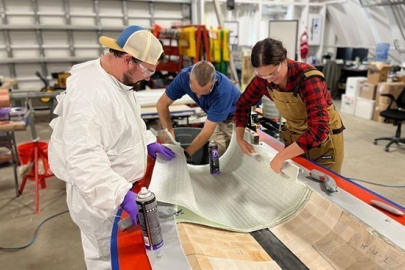 Report suggests investing in strategies and innovations to process the remaining 10%, improving sustainability and supporting a circular economy.January 6, 2025
Report suggests investing in strategies and innovations to process the remaining 10%, improving sustainability and supporting a circular economy.January 6, 2025 -
 For as long as she can remember, Emilie Lozier has found comfort in science. Now, she applies that same scientific curiosity to tackling energy technology and workforce challenges for a cleaner, greener future.January 2, 2025
For as long as she can remember, Emilie Lozier has found comfort in science. Now, she applies that same scientific curiosity to tackling energy technology and workforce challenges for a cleaner, greener future.January 2, 2025 -
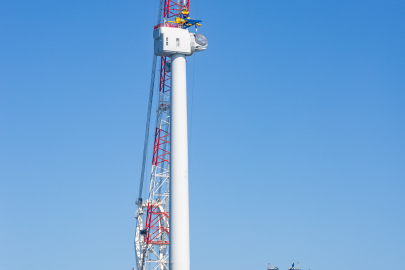 The Small Business Innovation Research (SBIR) and Small Business Technology Transfer (STTR) programs offer competitively awarded grants to small businesses to support scientific excellence and technological innovation.December 27, 2024
The Small Business Innovation Research (SBIR) and Small Business Technology Transfer (STTR) programs offer competitively awarded grants to small businesses to support scientific excellence and technological innovation.December 27, 2024 -
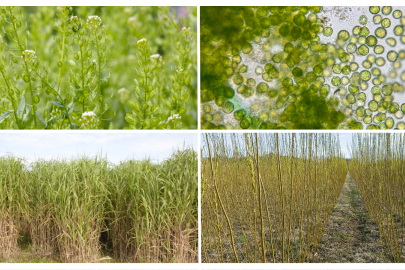 DOE announced funding for six university and industry projects to advance the production of low carbon intensity, purpose-grown energy crops critical to accelerating a clean energy bioeconomy.December 10, 2024
DOE announced funding for six university and industry projects to advance the production of low carbon intensity, purpose-grown energy crops critical to accelerating a clean energy bioeconomy.December 10, 2024

